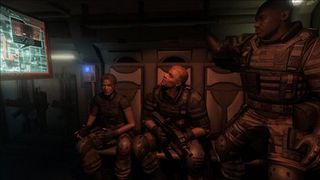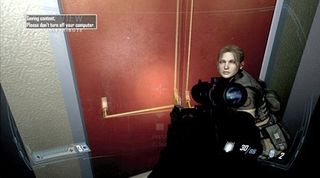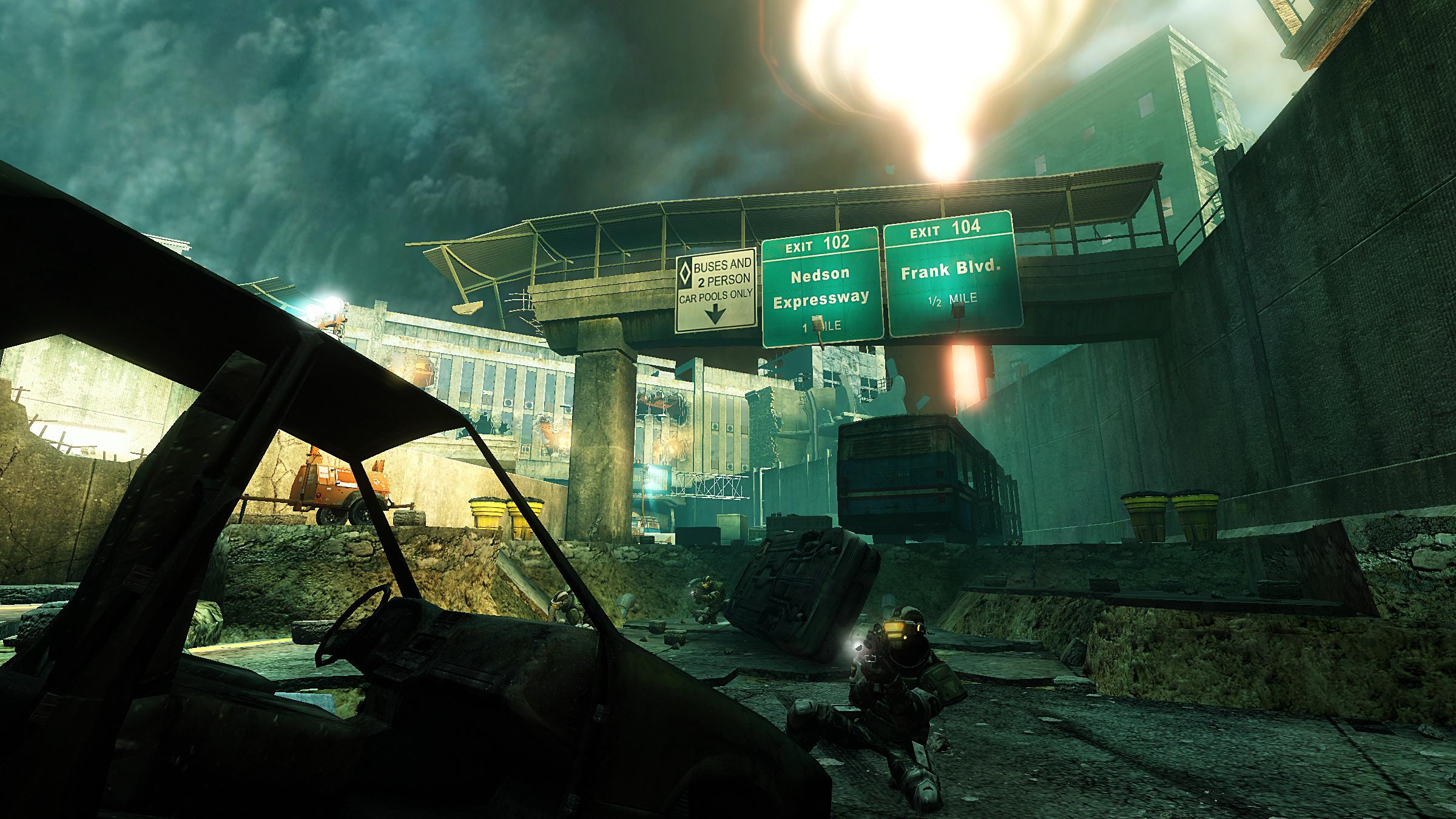Why you can trust GamesRadar+
Does such gratification undermine the psychological horror slant the rest of the game promotes? Of course not – you’d been nailing people to doors only two minutes ago – this is still very much within the remit of the FEAR universe. And it’s undeniably fun, if mindless. The psychological horror itself is wheeled out at almost every other opportunity, with constant, unrelenting terror leaving you drained and inescapably on edge. You can’t turn a corner without a psychic projection of a grown-up Alma flashing her bedraggled tits at you and running away. Likewise, you’ll become numb to the sight of blood-smeared walls and piles of rotting intestines.

Project Origin’s lost some of the original FEAR’s subtlety and timing – whereas the first game created an air of tension before popping a balloon in your face, Project Origin’s about grinding you into a nervous pulp through the use of unending apparitions and hallucinations. And when it’s not using spooky visions to wear you out, it’ll chuck some high-tech Predator-style ninja men or the well-publicized wall-climbing mutants (failed experiments of Armacham) at you. The skittering mutant freaks are an unexpected joy to fight, as they move along ceilings and walls, swinging from railings in entirely unpredictable ways and forcing you to make use of your slow-motion abilities.
The partially invisible, technologically enhanced villains you’ll see toward the close of the game employ some clever visual techniques too. In a similar fashion to the Predator’s not-quite invisible suit, their camouflage glitters as they move, sparking with primary colorsthat remain static on your monitor as a sort of odd ghosting effect. It’s not conveyed in screenshots at all, but it’s a strangely unnerving effectthat makes fighting them all the more distressing.
The magic of the original FEAR is buried in here somewhere, and occasionally it will rear its bloodied head to say hello, but Project Origin falls short of delivering the kick provided by the original game. PC shooters have evolved in great leaping bounds over the past three years (just look at Crysis, Far Cry 2, Left 4 Dead and Fallout 3), and while it’s unfair to think we can blithely wash our hands of the concept of shooting people in corridors, Project Origin retreads the same horror territory we’ve seen time and time again. It’s not bad horror territory, mind, it’s just the same, and there are some players whose fires just won’t be stoked by it in the slightest.

What it adds – the more capacious level design, the daylight, the mech bits, the cover system – doesn’t amount to much more than a garnish of new ideas on an old chicken salad of a game. But aswe said, the magic of FEAR is certainly in position. That basic pleasure of time slowing, of watching a death ballet unfold as glass shatters, masonry crumbles and bodies cartwheel with morbid elegance – it’s all intact, and it’s as incredible to behold as ever.
Feb 10, 2009
More info
| Genre | Shooter |
| Description | After a long battle, the official FEAR sequel is here, and the positives, like majorly creepy atmospheres and great AI, are back. Unfortunately the previous game's story shortcomings are back too. |
| Platform | "PS3","Xbox 360","PC" |
| US censor rating | "Mature","Mature","Mature" |
| UK censor rating | "18+","18+","18+" |
| Alternative names | "Project Origin","F.E.A.R. 2: Project Origin" |
| Release date | 1 January 1970 (US), 1 January 1970 (UK) |
Steve Hogarty is a London-based freelance journalist covering games and technology. His bylines have appeared in publications including GamesRadar, The Independent, Yahoo, VICE, Eurogamer, and more. He is also the co-host of the pocast, Regular Features.

Devs behind the legendarily horny Dead or Alive series take "strict action" against nearly 3,000 pieces of content made for "adult purposes" every year

Call of Duty dev's Dino sword fighting game that started out as a joke secures 10k wishlists in its first day

Veteran analyst expects Switch 2 to be "a massive success," but doesn't see it matching the "outlier" that was the Switch 1: "It could happen, but it's not likely"
Most Popular

